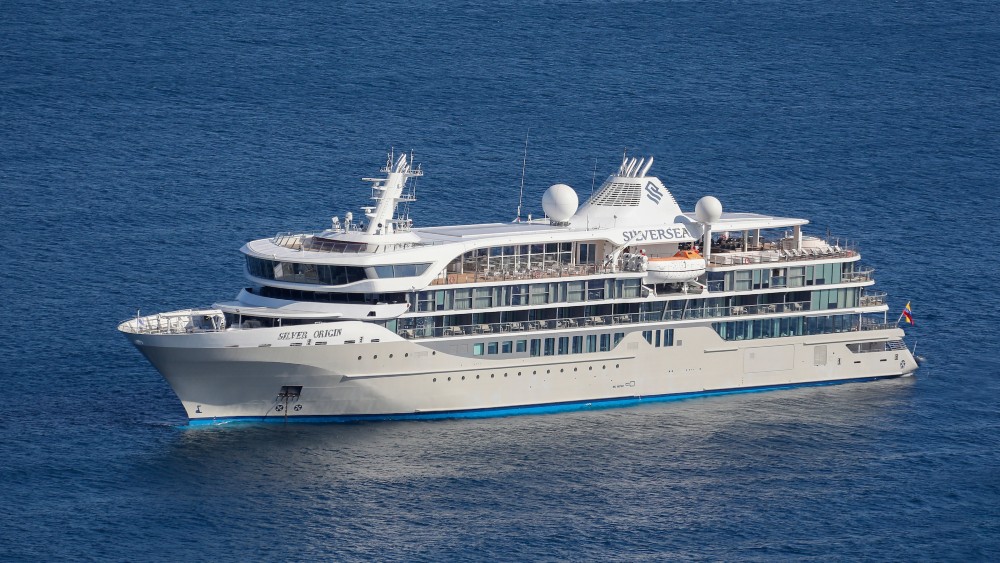
The Cruise Lines International Association is the largest trade association in the cruise industry. It represents more than 90 percent of global ocean-going cruise capacity. CLIA works together with its member companies to improve the safety, sustainability, and health of the cruise ship environment. CLIA members strive to provide the best possible vacations for their customers as a leader in responsible tourism.
Members include cruise lines, destinations, ports, suppliers, and travel agents from across the globe. They service approximately 30,000,000 passengers annually. They also engage in research, training, and marketing communications to keep customers informed about cruising.
CLIA serves as a trade association worldwide, providing its members the tools and support they need. CLIA can be the voice for the industry because it combines the expertise of its executives and a strong membership network.
The cruise industry faces many challenges but it remains one the most important economic sectors of port communities. It provides support for nearly half a million American workers and contributes $55billion to the US economy. This economic asset continues driving port communities across the globe.

High-touch surfaces are being eliminated from cruise lines, which have invested heavily in technology. Crew now serve buffets instead of waiting staff. Pre-cruise testing for all ships is required. Many have also instituted health protocols to help ensure the health of their passengers.
The government was not forthcoming with any clarity for the cruise industry after Hurricane Maria. CLIA however led an aggressive campaign and sent a clear message to industry. Through a call to action, CLIA urged its membership networks to act. They were able to send Congress more than 155,000 letters thanks to the support and cooperation of their community.
To further the mission of the cruise industry, the CLIA released the CLIA Global Cruise Industry Environmental Technologies and Practices Inventory. This report provides a comprehensive analysis and highlights how the industry has made progress towards a sustainable future.
CLIA's last report was released as ocean-going membership signed a new agreement to become carbon neutral by 2020. Advanced Wastewater Treatment Systems will be used on all 16 new cruise vessels, and they will cover 81 per cent of the industry's total capacity.
CLIA is a network of more than 16,000 travel agencies throughout North America. CLIA's educational programs offer travel agents information about cruising trends including safety and security. CLIA members get an email alert when they join.

CLIA provides the expertise and resources necessary to ensure that the cruise experience is enjoyable and safe. They have members from all major cruise lines, ports and locations, suppliers, as well as travel agents.
CLIA's goal is to provide the highest quality cruise service and educate the public on cruising trends. The organization collaborates closely with the US Department of Commerce to protect the industry as well its passengers.
FAQ
Are you required to have a passport to travel on a cruise ship?
Passports are essential for traveling the world. You can visit any country you want without needing to obtain a visa.
You might not be allowed into certain countries if you don't have a passport. You can also stay longer abroad with a passport.
Is a cruise boat all-inclusive or not?
It is not possible to cruise on all-inclusive ships as they do no offer meals for passengers with dietary limitations. There is no room service, laundry service, or other amenities like spas, pools, gyms, etc.
However, some cruise lines offer "all-inclusive" packages which cover everything except alcohol. These packages usually include airfare, hotel accommodations, entertainment, and beverages.
Do you have any additional information I should know before I take a cruise or go on one?
Before you travel on your first cruise ship, there are several things you should know. Remember that you will travel with other people. Don't be critical of other people as you don't know their feelings about anything. Keep in mind that you will be dining and drinking with strangers. Wear appropriate clothing. Do not wear shorts or tank tops on deck. Wear comfortable clothes that won't get dirty. Be prepared for extreme temperatures. Sunscreens are essential. In case you need to spend time outdoors, bring a hat. You are responsible for your own actions. Don't drink & drive!
What is the cost of a cruise vacation?
A cruise vacation costs $1,000 per head plus taxes. A family of four will pay $4,200 on average. This includes all meals, drinks and entertainment. It also includes port fees, gratuities, and other shipboard amenities.
How much do I tip my Cruise Director
It varies from one cruise line to the next. Some cruise directors get tips, while others do not. The best way to find out if you need to tip your Cruise Director is to ask them when you board the ship. They will often tell you if tips are expected.
Are cruises a formal affair?
No, you don't need to wear formal attire or anything fancy. Relax and be comfortable.
Statistics
- The line estimates savings of 50% when you purchase this bundle. (travel.usnews.com)
- You can save 15% off the total price if you book in advance of your trip. (travel.usnews.com)
- In addition, 10 to 15 percent gratuity is typically added to bar bills — for alcohol and soft drinks — and gratuities are applied to spa treatments. (cruiseline.com)
- *20% Gratuities Apply on Free Unlimited Open Bar; Free Specialty Dining. (ncl.com)
External Links
How To
How do you plan your first Cruise?
A cruise planning process is similar to any other trip. There are many things you need to consider such as where to go and what activities to include, costing, and budgeting. When planning your first cruise, you should know some things to keep in mind if cruising is new to you. Cruises usually last for three weeks longer than land vacations, so make sure you leave nothing out. Here are some tips to make this vacation even more easy:
-
Start early. Book your cruise at least six months in advance. This allows you to save money and avoid crowds. You'll also have ample time to research the ship, its itinerary, ports, and other activities. You might even find a deal on airfare too!
-
You can choose a destination. There are lots of reasons why people love cruising to different destinations. Some people love exploring cities while others enjoy relaxing onboard. Whatever your preferences, you should remember which destination you would like to visit. Popular choices include the Caribbean, Europe, and Alaska.
-
Book a suite. Suites offer more space, a private balcony, and other amenities. These suites can usually be booked for $100-$300 per person, depending on their size and availability during your sailing date.
-
You should always check the weather forecast. Cruising is often associated in warm tropical climates. Check the weather forecasts for days that you will be visiting ports. The ocean is unpredictable, especially in places like Alaska or Antarctica, so it's best to know how bad the weather could potentially be before booking your cruise.
-
Keep it light when packing for a cruise. You should only bring 10 items. It's not necessary to pack too many clothes or shoes into your suitcase. It's better to pack only what you actually need in small bags. It is a good idea to bring layers of clothing because you might not be able access the laundry facilities at your destination.
-
Do your homework - Before you buy tickets, read reviews online. You should understand their pricing policies and what services they offer. Also, make sure to check if cancellation policies are applicable.
-
Do not miss these must-see destinations - Make sure you visit each port at least once. Each location is unique and has its own culture. Take advantage of the many local attractions.